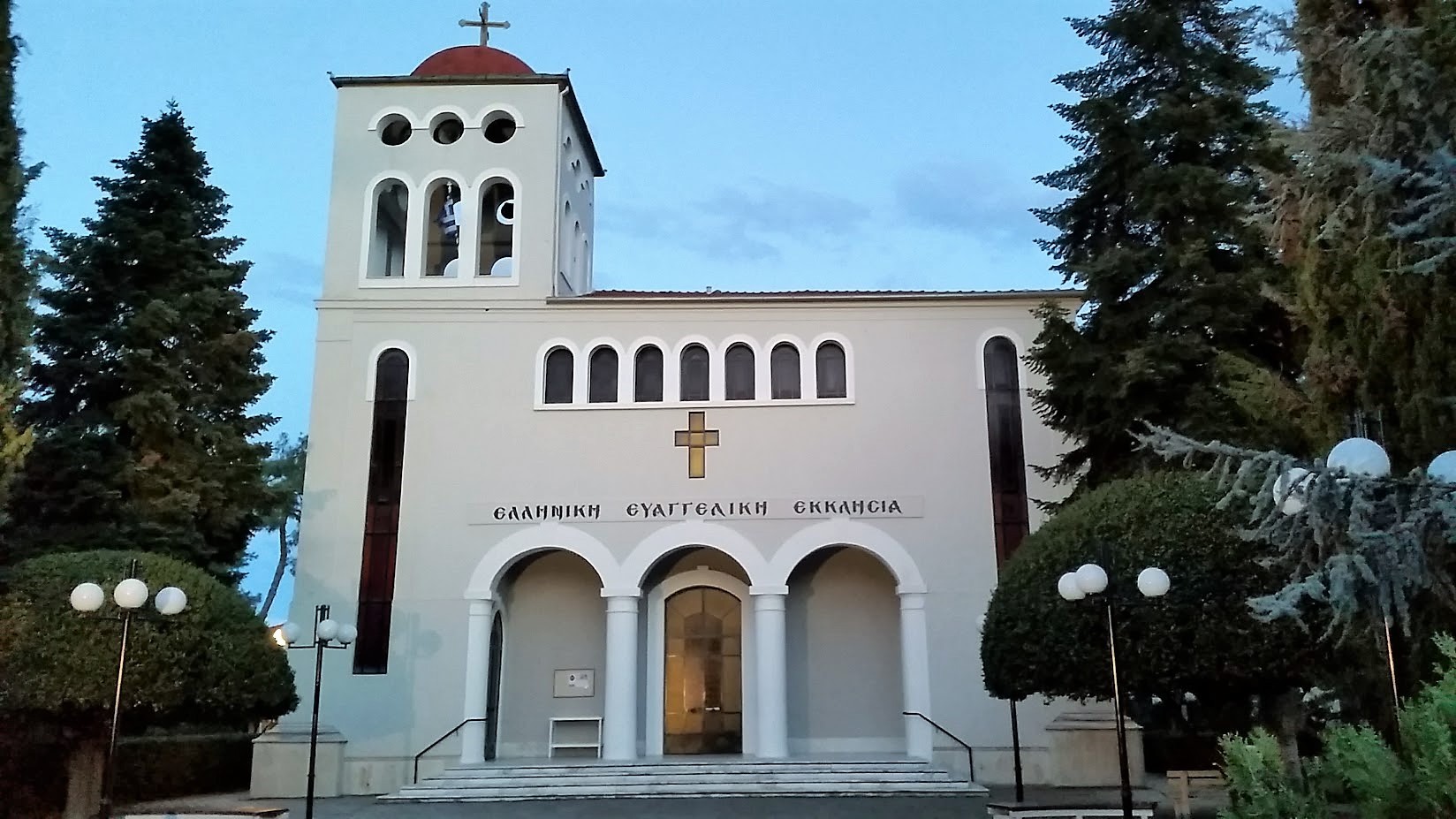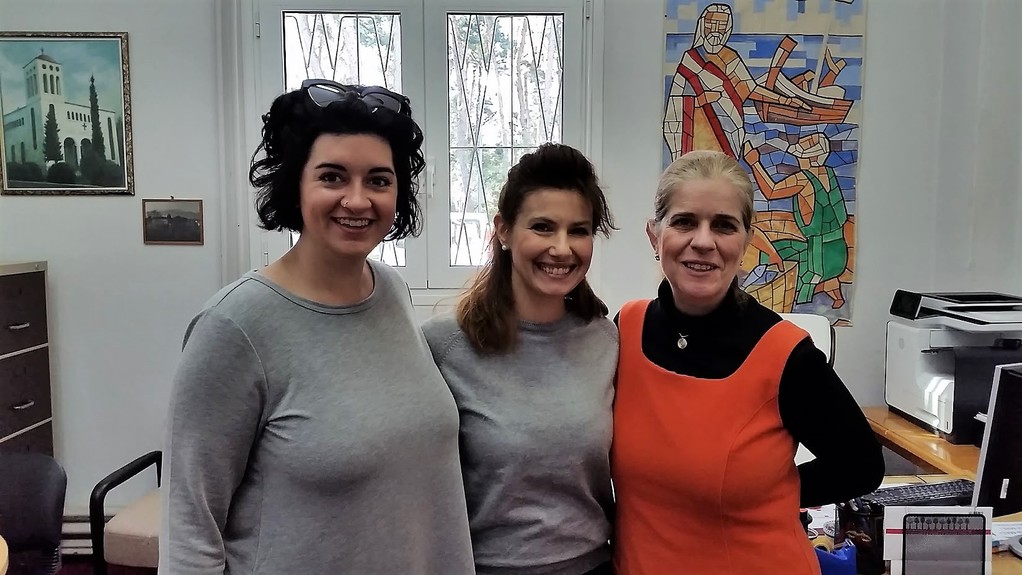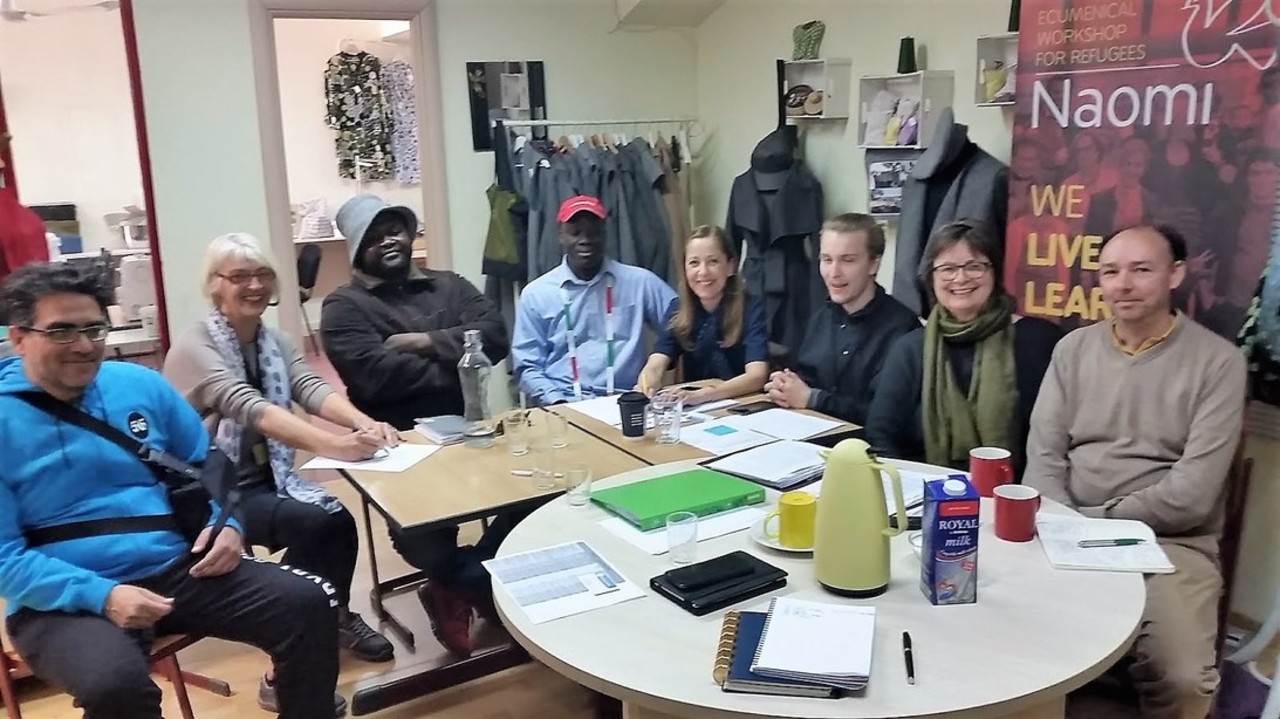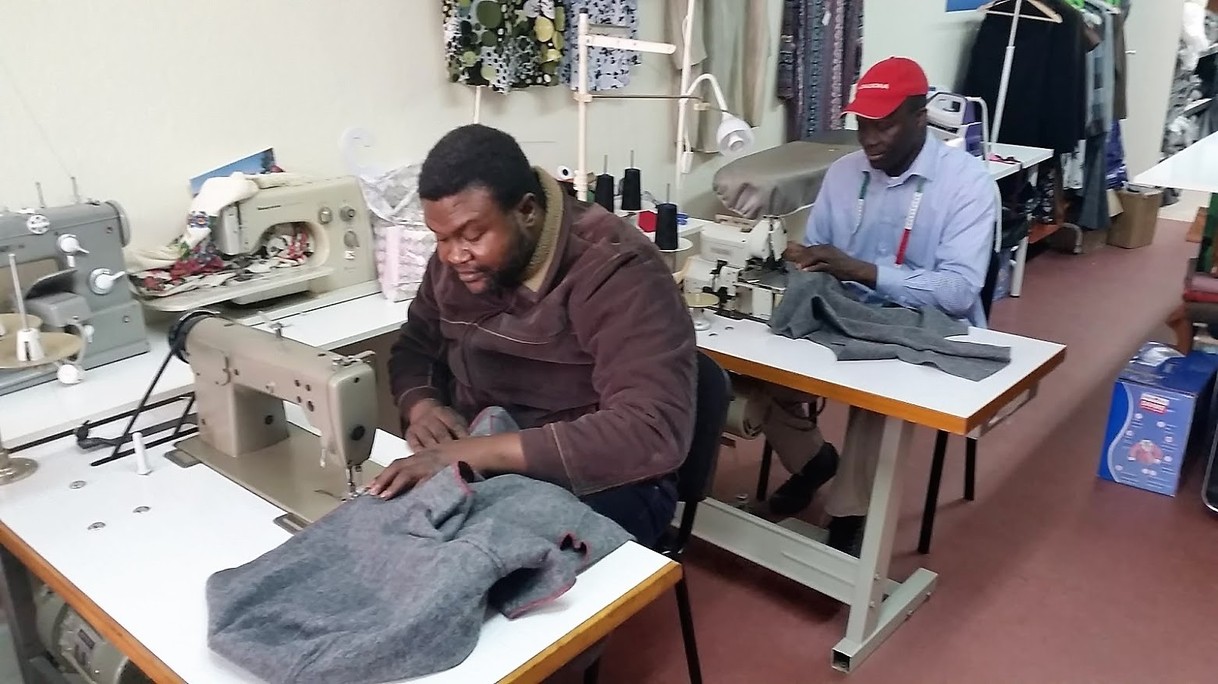A Letter from Burkhard Paetzold, serving in Central and Eastern Europe, based in Germany
May 2018
Write to Burkhard Paetzold
Individuals: Give online to E200392 for Burkhard Paetzold’s sending and support
Congregations: Give to D506900 for Burkhard Paetzold’s sending and support
Churches are asked to send donations through your congregation’s normal receiving site (this is usually your presbytery)
Dear friends,
Warm greetings from Berlin in this beautiful time of May.
Let me start by sharing with you about my recent amazing trip to Greece to visit with the Greek Evangelical Church in Katerini and learn about their work with refugees. This was my first visit with them, though I had heard a lot about this church and had met some of their wonderful members. But being in Katerini, I learned so much more: For instance, that the grandparents of many of the church members had been refugees themselves — forcibly expatriated from Asia Minor in the 1920s. It was much to my surprise that they had gone through Aleppo/Syria (!), where they received plenty of hospitality.
Some of you may remember pictures from 2015-16 showing Syrian refugees marching along the so-called “Balkan route.” Refugees who had crossed over the sea from Turkey to Greece tried to go north, crossing several countries — until the Hungarian government and later one country after another fenced their borders.
Many refugees got stuck in terrible circumstances in Greece near the Macedonian border at Idomeni — living in tiny hiking tents in winter mud or ice with limited access to running water and other facilities. The nearest Greek Evangelical parish, Katerini, managed to collect donations and convince chefs of a number of local restaurants and volunteers to cater daily meals for several months for the thousands of refugees in the Idomeni camp. I went with a group of Presbyterians to Greece during Easter 2016, and some of us visited Idomeni.
On March 14, 2016, when the situation in the Idomeni camp had become unbearable, the church in Katerini decided to help accommodate families and unaccompanied minors and founded the aid organization Perichoresis, which is now — two years later — well organized and partners with United Nations High Commissioner for Refugees (UNHCR) programs to help with integrating refugees in Greece.
On my trip on March 14, 2018, exactly two years later, I was pleased to meet Alexandra Nikolara, the program manager, Paris Papageorgiou, chairman of the board, and Rev. John Yfantidis, pastor of the Katerini church, among others. Another joy was to reconnect with Kearstin Bailey of our partner church, the United Church of Christ (UCC), who has just started to volunteer with Perichoresis after having worked with Kalunba Refugee Ministry in Budapest in 2017. What an excellent ecumenical web of relationships!
For a theological perspective on how we as Christians are called to serve the refugee, please read “Toward a Theology of Refuge,” which was written by a Presbyterian who visited Idomeni.
When we in Presbyterian World Mission discussed how to support Perichoresis, we felt it would be a good match to add Nadia Ayoub, who had just finished her work as a mission co-worker in Ukraine, to their team in order to help them meet the needs of Arabic-speaking families and children. She is planning to start this summer.
During my recent trip to Katerini, I was also able to visit NAOMI, an ecumenical meeting place and Workshop for Refugees in Thessaloniki, about 50 minutes from Katerini. The NAOMI Workshop produces beautiful garments while empowering refugees. It cooperates with different churches, among them the Greek Evangelical Church and other refugee initiatives I visited, like the Alkyone Refugee Day Center.
I met two of the tailors, Matthieu from Benin and Didier from the Dem. Rep. of Congo, together with fashion designers and textile engineers from Germany, and found it particularly interesting to see them up-cycling UNHCR blankets and other materials. Dorothe Vakalis, co-founder of NAOMI and a retired pastor, told me that, even though they are a small social enterprise, they think big in an EU that puts a high burden on Greece; in a Greek economy that is still very much in trouble; and in a bureaucracy that seems unable to accommodate the refugees who arrive.
NAOMI’s story mirrors the story of Naomi in the biblical book of Ruth who, forced to leave her homeland because of a famine and build a new life abroad, showed much appreciation and love for her new community. Naomi’s story shows how women and men of different backgrounds and religious traditions can live together fruitfully.
As I think of divisions being overcome, I remember that the Berlin Wall has now been gone longer than it existed.
This made me think of the time right after the regime change in East Germany when I was involved in local and regional community activities to establish democratic communities.
I remember that we East Germans had to learn many things from scratch. Ideally, there was a new bright world of the rule of law and democratic principles in front of us, but there was also the overwhelming rule of market logic that came with global pressure, a rule that every area in life seemingly had to follow. Many of my neighbors had to deal with social changes (unemployment, fighting over property rights) and some became nostalgic about the “good old days” when it seemed “convenient” that the ruling leaders of the communist party were “thinking on our behalf.”
In these times of transformation, I was a mayor in my little town and sometimes I had this nightmare of being in a dark room with little invisible threads hanging from the ceiling and having the task of finding and catching them, and then choosing which thread to pull for changes. All the while, I was unable to see which would be for the good or the bad.
When I see German angst again today and hear the cacophony of all kinds of conspiracy theories, right wing populists playing with all kinds of fears, misusing Islamophobia, Facebook bubbles, and again making voters nostalgic about the “good old days” of dictatorships, I remember my nightmare from the 90s.
So it was like an “aha moment” when I read in last week’s church newspaper an interesting article from Dieter Puhl of the Berlin City Mission Service Center at the “Berlin Zoo” train station.
When Puhl describes his role working with the homeless and refugees, he says: “Actually — I believe — we are nudged a bit to have to do all this. It’s a consequence of what is happening anyway. Different awesome little holy colored threads which are whirling around need to be connected. And, if we design it in such way that Jews, Muslims and Atheists feel at ease and are able to share this, it will become a blooming togetherness.”
What a beautiful image that contrasts my depressive mood from 29 years ago. It really summarizes what I have learned in the last 25+ years. Now I can see it’s not about me struggling to be in control of invisible threads — as if I’m God and know what is good or bad — but my role is to connect the holy colorful strings swinging through the room. It has become my call now to build bridges between people. What a privilege not to have to be in control, but let God be in control.
I’m aware that you symbolize some of these beautiful holy strings in your uniqueness, and I’m grateful to have you on my side and to have the privilege of helping you connect. If you want me to come and visit you and share my stories, there may be a chance when I am in the US in September and October of this year.
Thanks again for all your prayers and your financial and other support. I would very much appreciate your continued support.
Peace be with you all,
Burkhard
![]() You may freely reuse and distribute this article in its entirety for non-commercial purposes in any medium. Please include author attribution, photography credits, and a link to the original article. This work is licensed under a Creative Commons Attribution-NonCommercial-NoDeratives 4.0 International License.
You may freely reuse and distribute this article in its entirety for non-commercial purposes in any medium. Please include author attribution, photography credits, and a link to the original article. This work is licensed under a Creative Commons Attribution-NonCommercial-NoDeratives 4.0 International License.



